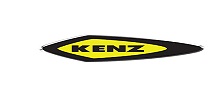| M/s. Ashapura Mine Chem Ltd. | Mumbai, Maharashtra | Preparation of Detailed Project Report on High Energy Products |
| M/s. Ratnawali Infrastructure Ltd. | Jaipur | Market Survey Cum Detailed Techno Economic Feasibility Report on Waste Tyre Pyrolysis |
| M/s. Air Modular Systems | Navi Mumbai, Maharashtra | Preparation of Detailed Project Report on Paracetamol Manufacturing Unit |
| M/s. Anbarasu & Jalapathi | Sathyamangalam, Tamil Nadu | Preparation of Detailed Project Report on Essential Oil Extraction (Jasmine and Tuberose) Unit |
| M/s. Bio Ethanol Agro Industries Ltd. | Hyderabad, Telangana | Pre-Investment and Pre-Feasibility Study on Dall Mill |
| M/s. Deepak Nitrite Limited | Pune, Maharashtra | Pre-Investment Feasibility Report for Establishment of Synthetic Iron Oxide from Iron Oxide Liquor/Sludge by Laux Process (Red, Yellow, Green, Blue) Plant |
| M/s. DIQU Tech Private Limited | Bangalore, Karnataka | Techno-Economic Feasibility Study for Establishment of Precipitated Silica from Rice Husk Ash Unit |
| M/s. Fortcaps Healthcare Ltd. | Bhopal, Madhya Pradesh | Preparation of Detailed Project Report on Soft Gelatin Capsules Unit |
| M/s. IMC Limited | Chennai, Tamil Nadu | Market Survey Cum Detailed Techno Economic Feasibility Report on Lube Oil Blending Based on Imported Base Oil |
| M/s. Kadombara Udyog Ltd. | Kolkata, West Bengal | Feasibility Study for Establishment of Grain based Alcohol Distillery Unit |
| M/s. Medisel Kenya Limited | Ahmedabad, Gujarat | Pre-Investment and Pre-Feasibility Study on Poly Aluminium Chloride (Water Treatment Grade) Plant |
| M/s. Raajratna Ventures Limited | Ahmedabad, Gujarat | Pre-Investment and Pre-Feasibility Study on Aluminium Foil Production Unit |
| M/s. Shakti Bhog Foods Ltd. | Haridwar, Uttarakhand | Preparation of Detailed Project Report on Plain Corn Flakes and Coated Choco Flakes Plant |
| M/s. Shri Lakshmi Cotsyn Ltd. | Kanpur, Uttar Pradesh | Techno-Economic Feasibility Study for Establishment of Precipitated Silica from Rice Husk Ash |
| M/s. Sunil Healthcare Limited | New Delhi, Delhi | Feasibility Study for Establishment of Cashew Nut Processing Plant |
| M/s. The Commercial Motors Ltd. | Lucknow, Uttar Pradesh | Pre-Investment and Pre-Feasibility Study on Sheet Metal Components for Automobiles Project |
| M/s. AHW Steels Ltd. | Kolkata, West Bengal | Project Feasibility and Market Study for Establishment of Maize and Its By Products (Maize Starch, Modified Starches & Animal Feed) Manufacturing Unit |
| M/s. Ashapura International Ltd. | Mumbai, Maharashtra | Feasibility Study for Establishment of Zeolite 4a (Detergent Grade) Manufacturing Project |
| M/s. Asian Tea & Exports Limited | Kolkata, West Bengal | Preparation of Detailed Project Report on Superoxide Dismutase (SOD) |
| M/s. B.L. Agro Oils Ltd. | Bareilly, Uttar Pradesh | Project Feasibility and Market Study for Establishment of Cold Storage Unit |
| M/s. Beardsell Limited | Secunderabad, Telangana | Pre-Investment and Pre-Feasibility Study on Castor Oil (Extraction and Refining) Unit |
| M/s. Bombay Minerals Limited | Mumbai, Maharashtra | Feasibility Study for Establishment of Ferro Silicon Project |
| M/s. Donear Industries Ltd. | Mumbai, Maharashtra | Project Feasibility and Market Study for Establishment of Aluminium Foil Manufacturing Plant |
| M/s. Godavari Biorefineries Ltd. | Mumbai, Maharashtra | Techno-Economic Feasibility Study for Establishment of Cellulose Acetate Manufacturing Plant |
| M/s. Godrej & Boyce Mfg. Co. Ltd. | Mumbai, Maharashtra | Market Survey Cum Detailed Techno Economic Feasibility Report on Autoclaved Aerated Concrete (AAC Blocks) Manufacturing Plant |
| M/s. Gravita India Limited | Jaipur, Rajasthan | Pre-Investment and Pre-Feasibility Study on Reclaimed Rubber Sheets from Waste Tyres |
| M/s. Gujarat Ambuja Exports Ltd. | Ahmedabad, Gujarat | Preparation of Detailed Project Report on Sodium Silicate from Rice Husk/Hull |
| M/s. ITC Limited-Agri Business Division-IL Ltd. | Guntur, Andhra Pradesh | Preparation of Detailed Project Report on Nicotine from Tobacco Waste |
| M/s. J.K. Cement Ltd. | Kanpur, Uttar Pradesh | Pre-Investment and Pre-Feasibility Study on Dairy Farming (500 Cows) Project |
| M/s. Jindal Udyog Limited | Kolkata, West Bengal | Market Survey Cum Detailed Techno Economic Feasibility Report on Cold Rolled Sheet Mill |
| M/s. Kadambora Udyog Ltd. | Kolkata, West Bengal | Feasibility Study for Establishment of Bottling of Country Liquor (Automatic Plant) |
| M/s. Loxim Industries Limited | Ahmedabad, Gujarat | Pre-Investment and Pre-Feasibility Study on Toner Ink for Xerox Machine |
| M/s. Mep Cotton Ltd. | Rajkot, Gujarat | Pre-Investment and Pre-Feasibility Study on Cotton Seed Delinting/Crushing and Refining Unit |
| M/s. Orissa Stevedores Limited | Cuttack, Odisha | Market Survey Cum Detailed Techno Economic Feasibility Report on Cenosphere Processing Unit |
| M/s. Overseas Private Limited | Bangalore, Karnataka | Pre-investment feasibility report for Establishment of Industrial Safety Leather Shoes Plant |
| M/s. Quiz Electronica LLP | Palghar, Maharashtra | Techno-Economic Feasibility Study for Establishment of LED Street Light Assembling Unit |
| M/s. RSPL Limited | Kanpur, Uttar Pradesh | Pre-investment feasibility report for Establishment of Multiblade Safety Razor Unit |
| M/s. Rubfila International Ltd. | Palakkad, Kerala | Pre-Investment Feasibility Report for Establishment of Flexible Polyurethane Foam Production Unit |
| M/s. Sarda Metals & Alloys Limited | Vizianagaram, Andhra Pradesh | Feasibility Study for Establishment of Manganese Oxide (Mno) through Calcination of Manganese Oxide Ore in Rotary Kiln Project |
| M/s. Shree Cement Ltd. | Beawar, Rajasthan | Pre-Investment Feasibility Report for Establishment of Gypsum Plaster Board Production Unit |
| M/s. Shree Ganesh Jewellery House Ltd. | Kolkata, West Bengal | Pre-Investment and Pre-Feasibility Study on Indian Made Foreign Liquor (E.N.A) Project |
| M/s. Shri Bajrang Power & Ispat Ltd. | Raipur, Chhattisgarh | Pre-Investment Feasibility Report for Establishment of Cenosphere Production Plant |
| M/s. Skipper Electricals (India) Ltd. | Alwar, Rajasthan | Techno-Economic Feasibility Study for Establishment of Power Transformer Project |
| M/s. Tata Steel Limited | Jamshedpur, Jharkhand | Techno-Economic Feasibility Study for Establishment of Iron Powder Production Unit |
| M/s. Tetra Tech India Ltd. | New Delhi, Delhi | Techno-Economic Feasibility Study for Establishment of Re-Refining of Engine Oil, Transformer Oil and Hydraulic Oil Plant |
| M/s. Vandana Global Ltd. | Raipur, Chhattisgarh | Preparation of Detailed Project Report on Chromite Beneficiation Plant |
| M/s. 3rd Eye Advisory Ltd. | Lucknow, Uttar Pradesh | Pre-Investment and Pre-Feasibility Study on Sanitary Napkins |
| M/s. Ajeet Seeds Ltd. | Aurangabad, Maharashtra | Techno-Economic Feasibility Study for Establishment of Beer Plant |
| M/s. ARCL Organics Ltd. | Kolkata, West Bengal | Project Feasibility and Market Study for Establishment of Adhesive (Fevicol Type) |
| M/s. Asian Tea and Exports Ltd. | Kolkata, West Bengal | Pre-Investment and Pre-Feasibility Study on HDPE Pipes Production Unit |
| M/s. B.L. Agro Oils Ltd. | Bareilly, Uttar Pradesh | Preparation of Detailed Project Report on Cold Storage |
| M/s. Citland Limited | Guntur, Andhra Pradesh | Techno-Economic Feasibility Study for Establishment of Nicotine Extraction from Tobacco Waste |
| M/s. CRI Limited | Kolkata, West Bengal | Preparation of Detailed Project Report on Graphite Electrodes |
| M/s. Danapur Flour Mills Ltd. | Patna, Bihar | Techno-Economic Feasibility Study for Establishment of Stainless Steel Sheet Rolling & Manufacturing of S.S. Utensils |
| M/s. DCM Shriram Industries Limited | Delhi | Techno Economic Viability (TEV) study on Synthetic Camphor |
| M/s. Dharampal Satyapal Limited | Noida, Uttar Pradesh | Detailed Project Report |
| M/s. Eri-Tech Ltd. | Kolkata,West Bengal | Preparation of the DPR and Pre-Investment Study of Fiber Optical Cables |
| M/s. Fiabila India Ltd. | Mumbai, Maharashtra | Market Survey Cum Detailed Techno Economic Feasibility Report on Resins for Nail Polish |
| M/s. Foods, Fats & Fertilisers Limited | Hyderabad, Telangana | Preparation of Detailed Project Report on Gum Arabic (Spray Drying Process) |
| M/s. Gemco Energy Limited | Faridabad,Haryana | Information on Economic, Technical, Financial, Managerial and Production Aspects of Lithium lon Battery (Battery Assembly) |
| M/s. Genera Agri Corp Limited | Hyderabad, Telangana | Preparation of Detailed Project Report on Starch & Starch Derivatives with 4MW Co-Generation Plant (Starch, Glucose, Maltodextrin, High Maltose Syrup & Powder, Dextrose Anhydride & Sorbitol |
| M/s. Gokul Refoils Co. Op. Housing Society Ltd. | Ahmedabad, Gujarat | Market Survey Cum Detailed Techno Economic Feasibility Report on Calcined Bauxite Production Plant |
| M/s. Gorakhpur Resources Limited | Gorakhpur, Haryana | Pre-Investment and Pre-Feasibility Study on Beer Plant |
| M/s. Gravita India Limited | Jaipur, Rajasthan | Pre-Investment and Pre-Feasibility Study on Lead Recycling (Smelting & Refining) Plant |
| M/s. IFB Agro Industries Limited | West Bengal | Pre-Investment Feasibility Report for Establishment of Precipitated Calcium Carbonate (PCC) Manufacturing Unit |
| M/s. International Traceability Systems Limited | New Delhi, Delhi | Market Survey Cum Detailed Techno Economic Feasibility Report on Management College (BBA, MBA, BCA & MCA) |
| M/s. Janki Corp. Limited | Bangalore,Karnataka | Project Feasibility and Market Study for Establishment of E-Waste Recycling Plant |
| M/s. Jindal Udyog Limited | Kolkata, West Bengal | Project Feasibility and Market Study for Establishment of Cold Rolled Sheet Mill |
| M/s. JK GD Cooperative Housing & Infrastucture Ltd | Srinagar, Jammu & Kashmir | Project Feasibility and Market Study for Establishment of Residential Apartment |
| M/s. JSW Steel Ltd. | Thane, Maharashtra | Pre-Investment Feasibility Report for Establishment of Aluminium Alloy from Virgin Metal Project |
| M/s. Kadombara Udyog Ltd. | Kolkata, West Bengal | Market Survey Cum Detailed Techno Economic Feasibility Report on Bottling of Country Liquor (Automatic Plant) |
| M/s. Kaizer Construction Company Limited | Kolkata, West Bengal | Pre-Investment and Pre-Feasibility Study on Sugar Candy (Soft & Hard Boiled) |
| M/s. Krishi Vikas Sahakari Samiti Ltd. | Jaipur, Rajasthan | Techno-Economic Feasibility Study for Establishment of Biofertilizer and Phosphate Rich Organic Manure |
| M/s. Krishna Institute of Medical Sciences Ltd. | Secunderabad, Telangana | Feasibility Study for Establishment of Surgical Gloves Manufacturing Unit |
| M/s. Krishna Solvechem Limited | Mumbai, Maharashtra | Preparation of Detailed Project Report on Acrylic Acid and its Derivative (Butyl Acrylate, Methyl Acrylate, Ethyl Acrylate) |
| M/s. Krishnonics Ltd. | Gandhinagar,Gujarat | Feasibility Study for Establishment of Peanut Butter |
| M/s. KSL & Industries Ltd. | Nagpur, Maharashtra | Techno-Economic Feasibility Study for Establishment of Coal Based Power Plant 500 MW |
| M/s. Kusalava International Limited | Krishna District,Andhra Pradesh | Preparation of the DPR and Pre-Investment Study of Cold Storage (Shrimp & Agricultural Products) |
| M/s. Larsen & Tourbo Limited | Pune, Maharashtra | Feasibility Study for Establishment of Polytechnic College Project |
| M/s. LGW Industries Limited | Kolkata, West Bengal | Preparation of Detailed Project Report on Water Based Acrylic Adhesive for BOPP Self Adhesive Tape |
| M/s. Majalgaon Sah. Karkhana Ltd. | Sundernagar, Himachal Pradesh | Market Survey Cum Detailed Techno Economic Feasibility Report on Onion Powder Manufacturing Plant |
| M/s. Manglam Build-Developers Ltd. | Jaipur, Rajasthan | Market Survey Cum Detailed Techno Economic Feasibility Report on Dry Fruit Processing |
| M/s. Merino Industries Ltd. | Ghaziabad, Uttar Pradesh | Market Survey Cum Detailed Techno Economic Feasibility Report on Tissue Culture Lab for Production of Potato Seeds |
| M/s. Mittapalli Spinners Limited | Hyderabad, Telangana | Consultancy Services for Active Pharma Ingredients (API) & IV Fluids (BFS Technology) Establishment |
| M/s. Modern Tube Industries Ltd. | Vadodara, Gujarat | Project Feasibility and Market Study for Establishment of Cigarette Manufacturing Unit |
| M/s. Nandan Petrochem Ltd. | Mumbai, Maharashtra | Project Feasibility and Market Study for Establishment of Transformer Oil Manufacturing Unit |
| M/s. Nandi Irrigation Systems Limited | Hyderabad ,Telangana | Assessment of The Potential Profitability of Chlorinated Polyvinyl Chloride Manufacturing |
| M/s. Narmada Bio-Chem Ltd. | Ahmedabad, Gujarat | Project Feasibility and Market Study for Establishment of Complex NPK Fertilizer Plant |
| M/s. National Peroxide Ltd. | Kalyan, Maharashtra | Business Plan of Sodium Percarbonate Production |
| M/s. Nesco Limited | Karamsad,Gujarat | Feasibility Study for Establishment of Steel Shots & Grits |
| M/s. Nuberg Engineering Limited | Noida,Uttar Pradesh | Evaluating the Technical and Financial Information About the Methanol From Coal |
| M/s. Paprika Oleo’s (India) Ltd. | Virudhunagar, Tamil Nadu | Market Survey Cum Detailed Techno Economic Feasibility Report on Vermicompost from Solvent Extracted Spice Waste |
| M/s. Proec Energy Ltd. | New Delhi, Delhi | Preparation of Detailed Project Report on HDPE/PP Woven Fabric |
| M/s. Pure Diets India Ltd. | New Delhi, Delhi | Feasibility Study for Establishment of Organic Yeast from Organic Molasses |
| M/s. Radiohms Agencies Limited | New Delhi, Delhi | Feasibility Study for Establishment of Dextrose Powder Manufacturing Unit |
| M/s. Resource Inputs Limited | Hyderabad, Telangana | Pre-Investment and Pre-Feasibility Study on Cashew Nut Shell Oil |
| M/s. Resurgere Mines & Minerals India Ltd. | Mumbai, Maharashtra | Market Survey Cum Detailed Techno Economic Feasibility Report on Iron Ore Pelletization with Beneficiation Plant |
| M/s. Rotex Automation Limited | Vadodara,Gujarat | Techno Economic Viability (TEV) Study on Aluminium Anodizing Plant |
| M/s. RSPL Limited | Kanpur, Uttar Pradesh | Feasibility Study for Establishment of Multiblade Safety Razor |
| M/s. S.R. Chandra Industries Limited | Bareilly, Uttar Pradesh | Preparation of Detailed Project Report on LT Cable |
| M/s. Sahni Sales Private Limited | Vijayawada, Andhra Pradesh | Pre-Investment Feasibility Report for Establishment of Lubricants and Grease Blending Plant |
| M/s. Saipem India Projects Limited | Chennai, Tamil Nadu | Preparation of Detailed Project Report on Unsaturated Polyester Resins Production Plant |
| M/s. Sampark Agro Multistate Co Operative Society Ltd. | Mumbai, Maharashtra | Pre-Investment and Pre-Feasibility Study on Agricultural Warehouse with Cold Storage Unit |
| M/s. Satyavathi Biolife Sciences Limited | Hyderabad, Telangana | Pre-Investment and Pre-Feasibility Study on Production of Coleus forskohlii Extract |
| M/s. Sayaji Industries Limited | Ahmedabad, Gujarat | Feasibility Study for Establishment of Arabic Gum |
| M/s. Sethia Oil Industries Ltd. | Sitapur, Uttar Pradesh | Pre-Investment and Pre-Feasibility Study on Maize Starch and Its By Products Processing Unit |
| M/s. Shah Paper Mills Ltd. | Mumbai, Maharashtra | Preparation of Detailed Project Report on Artificial Sand from Stones and Waste Metals |
| M/s. Shakti Rail Infra Limited | Rourkela, Orissa | Techno-Economic Feasibility Study for Establishment of Wood Plastic Composite (WPC) Plant |
| M/s. Shining Tools Limited | Rajkot, Gujarat | Preparation of Detailed Project Report on Tungsten Carbide Rod |
| M/s. Shree Vallabh Industries Ltd. | Ahmedabad, Gujarat | Pre-Investment and Pre-Feasibility Study on Integrated and Composite Textile Unit |
| M/s. Shri Lakshmi Cotsyn Ltd. | Kanpur, Uttar Pradesh | Feasibility Study for Establishment of Beer & Whisky Plant |
| M/s. Shyam Steel Industries Limited | Durgapur,West Bengal | Preparation of the DPR and Pre-Investment Study of Iron Powder From Mill Scale Scrap |
| M/s. SRF Limited | Bhiwadi, Rajasthan | Pre-Investment and Pre-Feasibility Study on Gypsum from Synthetic Resin |
| M/s. SSP Pvt. Limited | Mumbai, Maharashtra | Pre-Investment and Pre-Feasibility Study on Starch & Starch Derivatives (Starch, Glucose, Maltodextrin, High Maltose Syrup & Powder, Dextrose Monohydrate, Dextrose Anhydrate) Production Unit |
| M/s. Sujata Synthesis Ltd. | Surat, Gujarat | Preparation of Detailed Project Report on AAC Blocks (Autoclaved Aerated Concrete Blocks) Manufacturing Plant |
| M/s. Sukhbir Agro Energy Ltd. | Shahjahanpur, Uttar Pradesh | Preparation of Detailed Project Report on Caffeine from Tea Waste |
| M/s. T. Stanes and Company Limited | Coimbatore, Tamil Nadu | Market Survey Cum Detailed Techno Economic Feasibility Report on Ply Board from Bamboo |
| M/s. Tata Metalinks Limited | Kolkata,West Bengal | Project Consultancy for Establishment of Ferrosilicon |
| M/s. The Dharamsi Moraji Chemical Co. Ltd. | Mumbai, Maharashtra | Pre-Investment Feasibility Report for Establishment of Sulphuric Acid Plant including Manufacture of Chlorosulphonic Acid, 23 % Oleum |
| M/s. Thermal Powertech Corporation India Limited | Nellore, Andhra Pradesh | Preparation of Detailed Project Report on Button Mushroom Cultivation |
| M/s. Universal Builders | Bangalore,Karnataka | Information on Economic, Technical, Financial, Managerial and Production Aspects of Prestressed Concrete Sleepers |
| M/s. UPL Limited | Mumbai, Maharashtra | Feasibility Study for Establishment of Bakery Industry in India |
| M/s. Uttam Exports Corporation Ltd. | Kasganj, Uttar Pradesh | Financial Feasibility Study of Establishment of Camphor Powder Production |
| M/s. Veejay Poly Plast Limited | Hyderabad, Telangana | Techno-Economic Feasibility Study for Establishment of Aluminium Rolling Mill |
| M/s. Wave Distilleries and Breweries Limited | Aligarh, Uttar Pradesh | Feasibility Study for Establishment of Potato Starch Processing Unit |
| M/s. Well Will Infrastructure Private Limited | Guwahati, Assam | Project Feasibility and Market Study for Establishment of Solar Panel |
| M/s. Zenith Metaplast (P) Limited | Nashik,Maharashtra | Pre-Investment Feasibility Report for Establishment of Microbrewery |
| M/s. Zeon Lifesciences Ltd. | Paonta Sahib, Himachal Pradesh | Techno-Economic Feasibility Study for Establishment of Protein Bar |

















